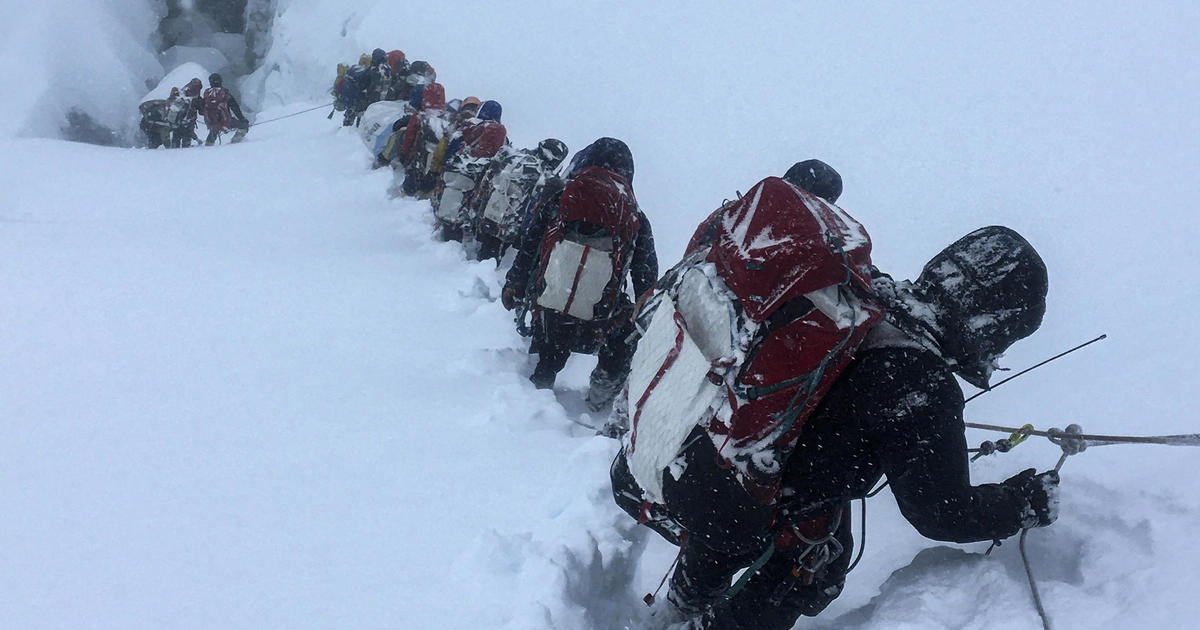The tragic deaths of five individuals on the Titan sub have shed light on the growing trend of “extreme tourism.” Wealthy travelers are now seeking out thrilling, yet potentially hazardous, adventures such as scaling remote mountains, paragliding into canyons, heli-skiing, and more. An increasing number of people are venturing to Antarctica, with a record-breaking 106,000 tourists expected to make the journey across the treacherous Drake Passage this summer. Despite concerns over overcrowding and fatalities, the Nepalese government has granted a record number of permits to climb Mount Everest this year, making 2023 one of the deadliest years for the world’s tallest peak.
For those willing to spend $2,500, they can embark on a week-long survival trek in the Guyanese jungle or opt for a 10-day trip to the remote Solomon Islands. This particular adventure involves learning essential skills like fishing and foraging from locals, followed by a test of these skills on a desert island (with prices starting at $42,000). Pelorus, a luxury travel company, offers a range of tailor-made experiences including Alaskan treks ($19,600) and a three-week private-jet tour of the world ($178,000). Last year, the adventure travel industry was valued at nearly $300 billion and is projected to reach $1 trillion within the next decade, according to consulting firm Grand View Research.
The demand for adventure travel has significantly increased since the COVID-19 pandemic began. Dan Richards, CEO of Global Rescue, a company that assists travelers in emergency situations, explains that people now prefer experiential travel to passive hotel stays and museum visits. Rather than spending $100,000 on a luxury car, individuals are choosing to take multiple trips to Africa with their families. African safaris have experienced the greatest growth, seeing a 75% increase in coverage compared to last year. Hiking, camping, and motorcycle tours have also seen a surge in demand. Richards attributes this trend to rising disposable incomes, a desire for authentic experiences in a globalized world, and the influence of social media, where people are keen to tick off their bucket-list experiences.
Carl Shephard, co-founder of Insider Expeditions, a boutique travel company, has also witnessed a surge in demand since the pandemic. His clients, typically in their 30s or 40s, have limited time but want to spend their money on extraordinary experiences. For instance, his company organized a cruise from South America to Antarctica with Jimmy Buffett’s Coral Reefer Band, as well as a spiritual journey up the Nile River for 200 entrepreneurs. Clients often request space flights and trips to extremely remote islands. Shephard emphasizes that while they push the boundaries of experience, safety remains a top priority.
However, the pursuit of adventure also comes with risks. Global Rescue has been involved in arranging transport for a motorcyclist who crashed in an isolated area of Mongolia. They have also evacuated three paragliders from the dangerous Karakoram region due to a heart attack, injuries, and severe illness. Richards reveals that his company assists between 2,000 and 3,000 travelers annually, primarily for medical emergencies.
The surge in extreme tourism is driven by the desire to allow wealthier individuals access to experiences that were once exclusive to experts. Companies like Blue Origin and Virgin Galactic offer commercial space exploration opportunities for those willing to pay millions of dollars. OceanGate, the manufacturer of the ill-fated Titanic sub, offers trips to see Titanic wreckage and explore underwater hydrothermal vents at a steep price of $250,000. These companies market themselves as opening up space and underwater exploration to the adventurous and curious.
However, these marketing strategies can attract individuals who are ill-suited for such extreme adventures. According to Richards, many people are enticed by the belief that “if they dream it, they can do it.” While aspirational messaging is positive overall, it can become dangerous if taken to the extreme. Concerns arise that the popularity of adventure tourism may lead to the emergence of inexperienced operators who prioritize profit over safety and security.
In conclusion, extreme tourism is on the rise, driven by the desire for unique and thrilling experiences. However, caution is necessary to ensure the safety of travelers. The adventure travel industry presents both opportunities and challenges, with the potential for growth and economic benefits, but also attracting inexperienced operators who may compromise safety standards. Ultimately, managing the risks associated with extreme tourism is crucial to maintaining the integrity and safety of this industry.
Denial of responsibility! VigourTimes is an automatic aggregator of Global media. In each content, the hyperlink to the primary source is specified. All trademarks belong to their rightful owners, and all materials to their authors. For any complaint, please reach us at – [email protected]. We will take necessary action within 24 hours.


